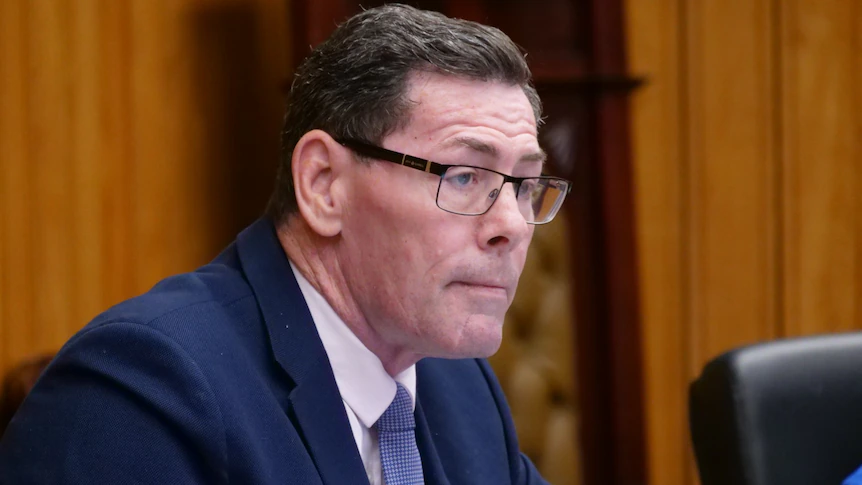
Randy Krehbiel
Tulsa World Reporter
Get email notifications on {{subject}} daily!
Your notification has been saved.
There was a problem saving your notification.
{{description}}
Email notifications are only sent once a day, and only if there are new matching items.
Followed notifications
Please log in to use this feature
Log In
Don’t have an account? Sign Up Today
A little-known foundation holding more than $200 million in assets from a 2019 opioid abatement agreement between the state and Purdue Pharmaceuticals is quietly separating itself ŌĆö and most of the $200 million ŌĆö from Oklahoma State UniversityŌĆÖs Center for Health Sciences in Tulsa.
The long-rumored split was verified during an OSU regents meeting in Langston on Friday, when the board passed without discussion an agenda item authorizing President Jim Hess to negotiate final terms of the separation with the National Center for Addiction Studies and Treatment Foundation.
The agenda item says OSU-CHS is to receive $20 million and labs and equipment acquired wholly or in part with $32 million in foundation funds.
The foundation would retain the remaining funds, which came to the state from Purdue and its owners as part of a consent decree to settle a lawsuit brought by then-Attorney General Mike Hunter in 2017.
The foundation, which was established by the consent decree to manage the resulting funds, generates about $10 million a year, according to a 2023 tax return and other sources.
Several public officials who were contacted said they were unaware of the split.
In a letter to Hess and OSU regents dated Aug. 1, current Attorney General Gentner Drummond said the agreement is in the best interests of both parties and hinted at a reason for the split.
ŌĆ£The Agreement permits OSU-CHS to champion a comprehensive and multidisciplinary approach to addiction and pain management through education and clinical care without the unnecessary distraction of competing with the divergent mission and objectives of the NCAST board of directors and its executive management team,ŌĆØ Drummond wrote.
Drummond declined to comment for this story, but rumors have circulated of a disagreement about how the cash and other assets ŌĆö including 18,000 research molecules ŌĆö involved in the agreement should be used.
Although not part of the deal, OSU-CHS hired PurdueŌĆÖs lead researcher in pain medication, Don Kyle. Kyle came on as head of the National Center for Wellness and Recovery, an existing component of the school that had worked primarily in treatment and education.
The National Center for Wellness and Recovery also exited its OSU affiliation as part of the separation, which apparently is not finalized.
Reportedly, Kyle and others wanted to focus the foundationŌĆÖs assets on using the research molecules that were part of the agreement to create a new non-addictive pain medicine. At one point, there was considerable public discussion about the centerŌĆÖs becoming a launching pad for an Oklahoma pharmaceutical industry.
Others wanted to prioritize treatment and prevention.
Sometime this year, the disagreement apparently reached a boiling point. In his Aug. 1 letter, Drummond says he has acted ŌĆ£as mediator between OSU and NCAST.ŌĆØ
According to the 2023 tax filing, the foundationŌĆÖs original bylaws specified that its nine directors were to include the OSU president and an appointee by each of the governor, the speaker of the state House of Representatives and the president pro tem of the state Senate.
In March, however, the foundation board reportedly amended its bylaws and removed Hess, who had just taken over after OSU President Kayse ShrumŌĆÖs resignation. It may or may not have removed the provisions for elected officialsŌĆÖ appointees.
Shrum had hired Kyle at OSU-CHS, but it is not clear whether her departure played any part in the split. The current board makeup is also unclear, but Tulsa financier Tucker Link and Oklahoma City automobile dealer Bob Howard are believed to still be members.
The foundation did not immediately respond to questions about its future, but the 2019 consent decree says the center will be ŌĆ£dedicated to addiction, studies, treatment and educationŌĆØ and will operate on ŌĆ£general principlesŌĆØ including improving ŌĆ£the lives of individuals in Oklahoma and across the nationŌĆØ through ŌĆ£research, education, prevention, treatment, elimination of the stigma associated with addiction, and public policy initiatives.ŌĆØ
The foundationŌĆÖs new website does not mention Oklahoma or a physical location for the center, but some familiar with the dispute said the $200 million in assets will remain tied to Oklahoma.
OSU also declined to comment except to restate information from the agenda item.
The consent decree says the center was to be created as part of OSU-CHS but doesnŌĆÖt explicitly state that it must remain so. In any event, changes in the relationship likely must be approved by Cleveland County District Judge Thad Balkman, who OKŌĆÖd the original consent decree and continues to oversee it.
randy.krehbiel
@tulsaworld.com
Get Government & Politics updates in your inbox!
Stay up-to-date on the latest in local and national government and political topics with our newsletter.
* I understand and agree that registration on or use of this site constitutes agreement to its user agreement and privacy policy.
Randy Krehbiel
Tulsa World Reporter
Get email notifications on {{subject}} daily!
Your notification has been saved.
There was a problem saving your notification.
{{description}}
Email notifications are only sent once a day, and only if there are new matching items.
Followed notifications
Please log in to use this feature
Log In
Don’t have an account? Sign Up Today



